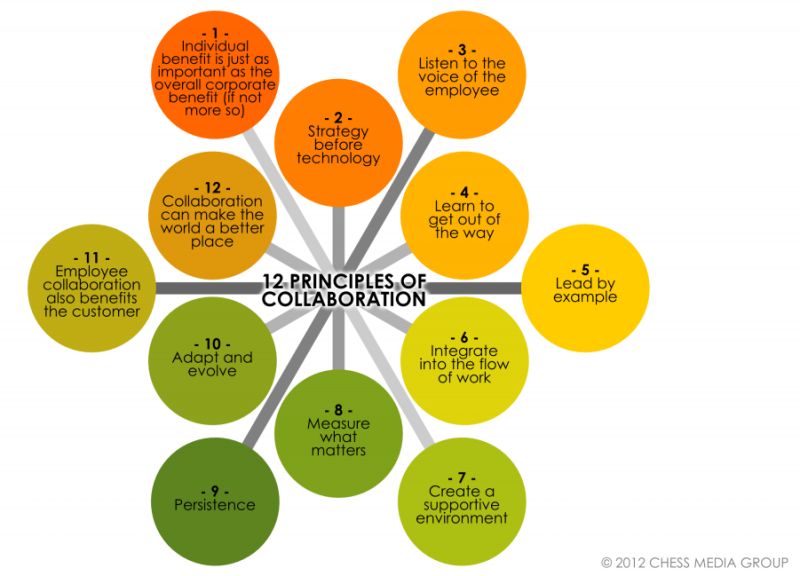 When it comes to the future of work and collaboration I’ve worked with and researched hundreds of companies. Collaboration is indeed a top priority for many business leaders but knowing what makes organizations successful can be a tricky thing. After all no two companies are like and their strategies and technologies can be quite different. In addition collaboration initiatives come from different departments with different budgets, they have different uses cases and corporate cultures, and different approaches, goals, and measures of success. So if there is so much variety here then how do we know what makes organizations successful?
When it comes to the future of work and collaboration I’ve worked with and researched hundreds of companies. Collaboration is indeed a top priority for many business leaders but knowing what makes organizations successful can be a tricky thing. After all no two companies are like and their strategies and technologies can be quite different. In addition collaboration initiatives come from different departments with different budgets, they have different uses cases and corporate cultures, and different approaches, goals, and measures of success. So if there is so much variety here then how do we know what makes organizations successful?
The 12 Habits Of Highly Collaborative Organizations
I happen to be a big fan of chess, so much so that my business partner and I named our company Chess Media Group. Did you know that there are more possible moves in a game of chess then there are atoms that exist in the universe and more moves then there are seconds that have elapsed since the big bang? Chess is virtually an infinite game yet somehow we have grand-masters who are always at the top. How do they succeed in this infinite game? They identify patterns and look for identifiable scenarios. This same approach is applicable for collaboration. So having said that, here are the 12 common habits or success factors for collaborative organizations. www.forbes.com
The Future of Work. Reshaping the Workplace Today. Building for Tomorrow
Today’s business leaders face the challenge of creating the future workplace. Because of the advent of new technologies as well as the emergence of Millennials as a major percentage of the workforce, the future workplace will look vastly different than the one we are used to. At the same time, a culture of sharing, transparency, and mobility is entering the business world, as technology barriers lower. This change is being driven by the consumerization of IT, which can be described as the introduction of the popular consumer-grade technologies and devices that are spreading into the workplace for business use.
To better understand the scope and nature of this changes, Chess Media Group conducted a global research study in May 2013, surveying 605 employees who currently use social and collaboration technology tools, and how these tools affect their ability to work efficiently and flexibly.
Three imperatives of the future workplace were discussed in our survey:
- Enterprise social and collaboration tools
- Bring-your-own-device (BYOD) policies; and
- Flexible work arrangements.
These items have made their way into the business world and have promoted new ways of working which are increasing in popularity and accelerating at a pace that will be difficult for organizations (and the business leaders that guide them) to ignore or delay acting on for much longer. For those that do delay, they may be left behind in a competitive global economy that will instead reward businesses which can harness the collective intelligence of their workforce.
To learn more, download a free copy of Chess Media Group’s global survey on the Future of Work.




